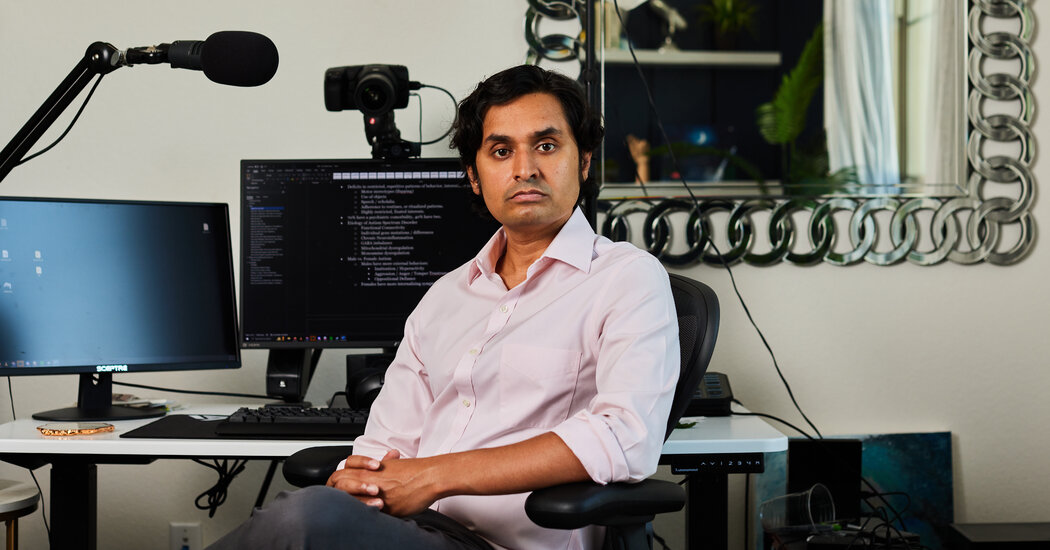Did Dr. Alok Kanojia’s livestreamed conversations with a troubled video game champion cross an ethical line?
A few minutes into his first livestreamed conversation with Byron Bernstein, Dr. Alok Kanojia got his caveats out of the way. This was not a therapy session; this was just conversation. Colleagues had warned him, he explained, that blurring the line could get him sued.
“I’m a psychiatrist,” he said, “but I can’t treat your depression over the internet.”
“Yeah, gotcha,” Mr. Bernstein said.
Dr. Kanojia’s fleece jacket bore the logo of Harvard Medical School, where he had done his medical residency. But he had also been a gamer who had followed Mr. Bernstein’s record-shattering career. He beamed at the younger man with undisguised admiration.
“So tell me,” he said, clasping his hands together. “What are talking about today, buddy?”
Mr. Bernstein, known in the gaming world as Reckful, tweaked the volume on his Twitch feed — thousands of viewers were waiting — and the two men plunged in.
The next hour and 53 minutes were intense even by the standards of Twitch, the livestreaming platform where video gamers often field questions about every aspect of their lives. As reactions flooded in, Mr. Bernstein opened up about his older brother’s death by suicide. He spoke about his own suicide attempt, his terrible experience with lithium, the nights he fell asleep wishing he would not wake up.
It was a riveting thing to watch: a fragile, brilliant young man opposite a probing, empathic doctor. The two men clearly liked each other, and Mr. Bernstein said he was improving. They had six conversations, with live audiences that climbed into the hundreds of thousands. Then, a few months later, the dialogue ended, tragically, with Mr. Bernstein’s death by suicide at 31.
